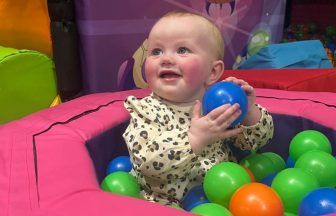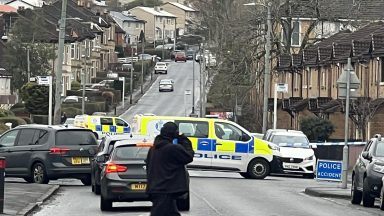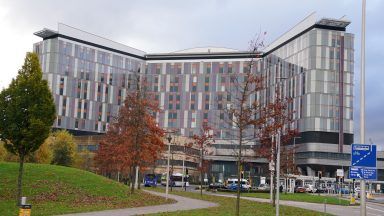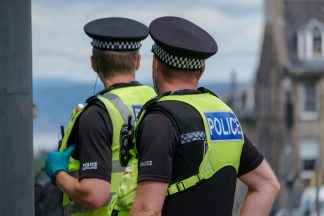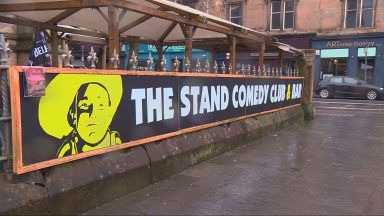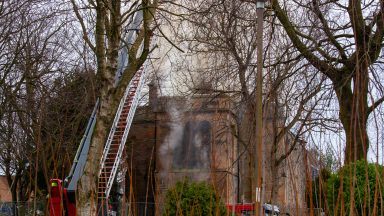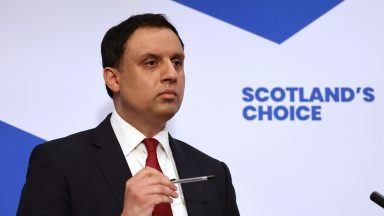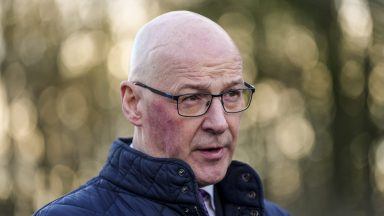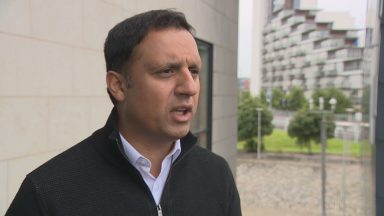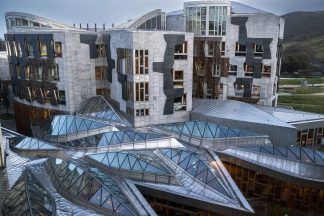MPs will no longer be able to cast their vote remotely on House of Commons business despite the coronavirus pandemic.
They had been able to speak in parliament, attend committees and vote electronically from home after procedures were changed early on in the crisis.
But Commons leader Jacob Rees-Mogg said this “hybrid parliament” had only been a temporary measure and that MPs needed to physically attend the House to conduct business most effectively.
MPs approved the UK Government’s motion to only allow them to vote in person by 261 votes to 163, a majority of 98.
It followed the defeat of an amendment to maintain remote voting during the Covid-19 pandemic by 185 votes to 242, a majority of 57 against, which fell despite a number of Conservative rebels.
Chaotic scenes emerged in the Commons as MPs were forced to join a huge queue – compared by one MP to Alton Towers – to decide their future voting method.
Speaker Sir Lindsay Hoyle and his officials were left repeatedly shouting instructions at MPs as social distancing measures required them to join a queue, keep two metres apart, walk through the chamber and announce their vote.
The queue stretched for several hundred metres, snaking through Westminster Hall and running to Portcullis House, the newer part of the parliamentary estate.
Orkney and Shetland MP Alistair Carmichael said the decision to revert back to traditional Commons voting is “as unacceptable as it is dangerous”.
The Liberal Democrat said he would not be returning to his constituency having travelled to London to attend parliament.
Carmichael said: “Not only is it logistically challenging, it would be downright irresponsible for me to return to my community now.
“So, I’m down here now at the behest of (Rees-Mogg) and I will be staying here until it is safe to go home.”
He added: “I think it is important that this House should be a parliament for the whole of the UK and every part of the UK should be able to participate here.
“And what the Leader of the House brings to us today is a recipe for us being a parliament, essentially, of people who live within driving distance of London – and that is simply as unacceptable as it is dangerous.
“It is a downright disgrace for a Leader of the House who sits in the interest of the supposed Conservative and Unionist Party to be bringing a measure of this sort.”
The SNP’s Westminster leader Ian Blackford also raised the issue of travel for MPs, and highlighted the fact Rees-Mogg had said the Commons may not go into recess again until the end of July.
The Ross, Skye and Lochaber MP said: “It might well be that (Carmichael) and others are committing themselves to being away from home for a prolonged period, be away from their families.
“Why? Why when we know that the hybrid facilities in the main work?”
Conservative Karen Bradley, who chairs Westminster’s procedure committee, moved the defeated amendment to keep remote voting in place in the coming weeks, with several Tory MPs rebelling to support the proposal.
Speaking for her motion, Bradley highlighted a conversation she had with a fellow Conservative MP who was advised by his doctor that he must not attend parliament for health reasons.
She said: “The idea that we decide today to disenfranchise him completely seems to me to be absurd.”
SNP MP Gavin Newlands, who represents Paisley and Renfrewshire North, was among those to vote while wearing a t-shirt and shorts.
The Commons dress code requires male MPs to wear a suit, although this is not as strict during votes.
Some MPs also appeared confused at the new voting procedures, with a few Conservative MPs attempting to exit the chamber via the wrong door.
A DUP MP initially walked up to the “noes” column, before correcting himself and walking through the “ayes” section.
Several MPs wore face coverings as they made their votes.
During the debate, Sir Lindsay appealed for “a bit of give and take” from the government and opposition parties to ensure all MPs can continue to vote.
Rees-Mogg said he would table a motion on Wednesday which would enable MPs unable to attend parliament on medical grounds to take part in some proceedings.
They will be able to participate in questions, urgent questions and ministerial statements, but under the current plans will not be allowed to vote.
The Commons leader said: “The stopgap of a hybrid parliament was a necessary compromise during the peak of the virus, but by not being here the House has not worked effectively on behalf of constituents.”
He added he expects “teething problems” with the new voting system, saying it will be “some time before our proceedings are fully restored”.
Labour’s Chris Bryant joked “have you ever been to Alton Towers” to which Rees-Mogg replied: “Indeed, yes I have, I took my sister Annunziata there many years ago.
“Enough of my reminisces because it is important that we protect, preserve, and prioritise our parliamentary democracy.
“It has to continue regardless of the disease that is afflicting the nation.”
Labour’s shadow Commons leader Valerie Vaz questioned if Rees-Mogg was “living in another universe”.
Caroline Nokes, Tory chairwoman of the women and equalities committee, branded the proposed measures “discriminatory”.
“Instantly a number of groups with protected characteristics are excluded, those who are pregnant or new mothers,” she said.
“Older members might be advised not to come here via public transport.
“The underlying health conditions of either members or their families are to be frank none of our business, but they will be excluded.”
Follow STV News on WhatsApp
Scan the QR code on your mobile device for all the latest news from around the country




